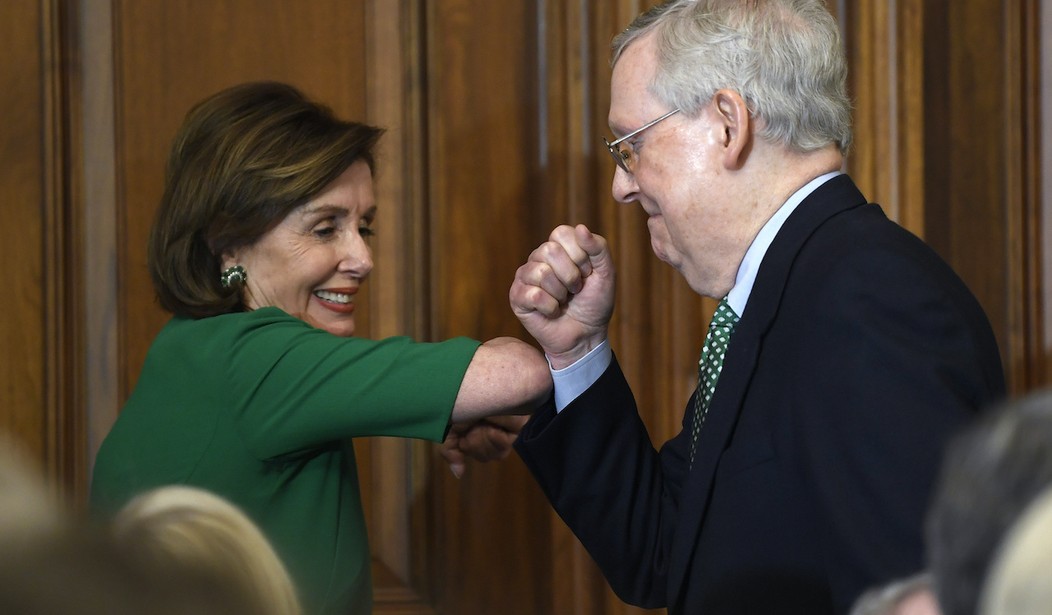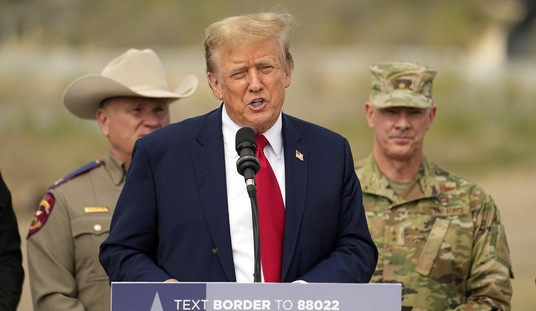Even before the coronavirus pandemic, America was about to run trillion-dollar deficits as far as the eye can see. Some blamed tax cuts, while others blamed domestic discretionary spending, but the truth is a different matter—the higher structural deficit is driven by ballooning entitlement programs.
The baby boomer generation is only just now starting to retire. That means that ten years from now, the situation will be even worse. Social Security and Medicare, the two biggest entitlement programs, have unfunded liabilities (money promised to be spent that doesn’t have a revenue source to back it up) that could total up to $70 trillion over the next 75 years.
In the nearer term, the amount America spends on interest, or servicing our debt, could surpass our defense budget in the next five years. As an increased portion of our government spending goes toward paying interest on the debt, our economic and military might could be irreparably damaged.
In other words, America was already in dire fiscal straits going into 2020. Then the coronavirus hit, which was met with an unprecedented stimulus response from the U.S. government to support payrolls, consumers, and businesses. At the same time, government revenues via taxes have declined along with the drop in economic activity. Now, America’s deficit for 2020 is nearly $3 trillion, with over four months still left to go in the year.
The policy response was mostly appropriate, but the risk is that this spending is hard for Congress to withdraw even after the coronavirus pandemic subsides. Politicians who pause required student loan payments, for example, will not so easily turn them back on. And given trillion-dollar deficits were the norm even before the pandemic hit, the risk is that this overspending leads to an inflationary period which harms American businesses and consumers, especially working-class Americans who live paycheck to paycheck. It should also be noted that there is ample evidence this overspending harms the working class now, and isn’t just a source of potential harm in the future.
Recommended
What to do
Once vaccines are fully tested and in widespread use America will need to rein in its spending. But when this reduction in spending occurs, there will be wounds to heal here at home—highlighted by the protests and unrest seen in American cities over the last few months. Because of this, a domestic focus will be highly appropriate.
If America must reduce spending and focus on domestic issues it is odd that so much attention and spending is still directed internationally.
Overall, America has a military budget that currently sits at about $750 billion, which is in real terms above what President Reagan spent during his defense buildup to beat the Soviet Union. Added to this, the U.S. spends about $50 billion on foreign aid every year. Some of this foreign aid goes to people who need it—much of it goes toward helping autocrats buy new weapons systems.
This $800 billion per year adds up. After 10 years, that’s $8 trillion, not even counting the interest cost this incurs as part of the overspending. Just the wars in Iraq and Afghanistan alone have cost about $5 trillion since 2001, which was about a quarter of our national debt before the coronavirus crisis hit.
That $5 trillion is still adding up. Today, America has troops in Saudi Arabia, Syria, Iraq, and throughout Africa. This is happening despite our military presence being of dubious benefit—Saudi Arabia is exploring nuclear technology with China, and Iraq and Syria are aligned with Iran. And don’t forget Afghanistan, where U.S. troops remain after nearly 20 years of fighting, despite no real change in the situation on the ground for a decade. Here, as is elsewhere in the Middle East, we often find ourselves backing up “allies” who lack any moral quality and have dubious strategic value to boot.
However, it is a mistake to pin America’s debt woes on the Pentagon. Cutting defense spending to a reasonable level, which would start by ending America’s wars in the Middle East, is not a fiscal silver-bullet. Getting out of the Middle East and re-prioritizing our defense capabilities toward deterrence and a strong Navy—which might save $100 billion per year—is only a small part of the trillion-plus dollars we are over-spending each year.
Yet it is fair to say that there’s been a bipartisan consensus in Washington to raise defense spending in return for increased entitlement and domestic discretionary spending—which is why it’s contradictory for those who treat the Pentagon as a sacred cow to claim to be fiscal conservatives. The solution isn’t cutting the defense budget so politicians can go spend the money elsewhere. The Department of Defense is far from the problem, but it should be on the table for cuts, just like everything else.
Policymakers should focus on making America a better place before even thinking about getting involved in foreign conflicts disconnected from American security. The good news is that foreign policy restraint makes strategic sense—this economic crisis only makes adopting it more urgent.
Willis L Krumholz is a fellow at Defense Priorities. He holds JD and MBA degrees from the University of St. Thomas, and works in the financial services industry.





















Join the conversation as a VIP Member